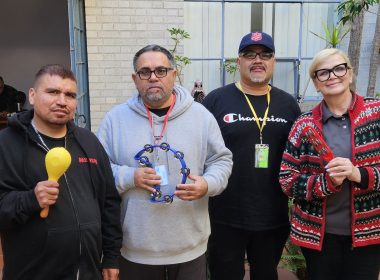The necessity and difficulty
By Craig D. Lounsbrough –
Forgiveness seems to be one of those things that’s a genuinely nice idea, but not really a life liberating reality.
Life is full of nice ideas; those trite sayings and gentle stories and brave concepts that would make life a whole lot better if they were really real. The reality is that they don’t really seem to work in the real world. Sometimes the very things that we wish were true simply dissolve and disintegrate when the reality of life hits them.
Forgiveness seems to be one of those things.
Sometimes the greatest, most profound truths seem removed from the reality of the lives that we live. It’s not that they don’t fit or are idealistic or naïve or far-fetched. Most often it’s simply that we don’t know how to incorporate them.
Forgiveness—“to grant free pardon and to give up all claim on account of an offence or debt,” according to the Oxford English Dictionary—is defined by the American Psychological Association as “the process of concludingresentment, indignation or anger as a result of a perceived offense, difference or mistake, and/or ceasing to demandpunishment or restitution.”
It is about letting go in a manner so total that the offense and the restitution are released.This makes it difficult on at least three basic fronts.
First, we typically demand restitution be obtained or that justice be meted out for whatever offense we have incurred. There is a deep sense of justice that demands correction of an offense through some sort of action that both compensates for whatever loss we sustained while teaching the offending party that such actions are inappropriate and intolerable. The act of forgiveness works against this feeling, making it difficult and contrary.
Second, forgiveness creates a perceived sense of vulnerability. If we “grant free pardon,” do we then open ourselves up to have the same offense perpetrated upon us again? Are we giving space and opportunity for the offending party to do to us what they did before? In forgiving, have we relinquished power that we can no longer hold over the person who offended us in order to keep ourselves safe or make them pay?
Third, we see forgiveness as letting someone “off the hook.” It’s a free pass, a mulligan, a turning away where we permit ignorance to erase that which should not be erased. We feel we do an injustice by not handing out justice and instead waving off an offense in a manner that seems both irresponsible and ignorant. Forgiveness is often seen as an easy way to resolve or bypass something that should be dealt with.
Forgiveness is not saying that the offense was ok or somehow less than what it really was. It’s not watering down the offense or somehow sweeping the whole thing under the carpet in some sort of passive gesture. In reality, it’s simply saying that to hold the offense against the person is simply too toxic for the one holding it. Forgiveness is not permissive or passive.
The old saying is true—forgiveness is more for the one who forgives than for him who is being forgiven.
Yet, the hardest person to forgive is most often ourselves. It’s as if there’s a blockage when we are the one in need of our own forgiveness. There’s something doubly binding when we are both the offending party and the one extending forgiveness all wrapped in one.
It’s right here that the greatest grace (unmerited favor) needs to be extended in that we embrace both authentic remorse for offenses we’ve incurred while extending ourselves the full release of forgiveness.
What are you holding onto and why are you doing it? If you look closely enough you’re likely to see that the rationale for withholding forgiveness is far outweighed by the liberating release inherent in it.











